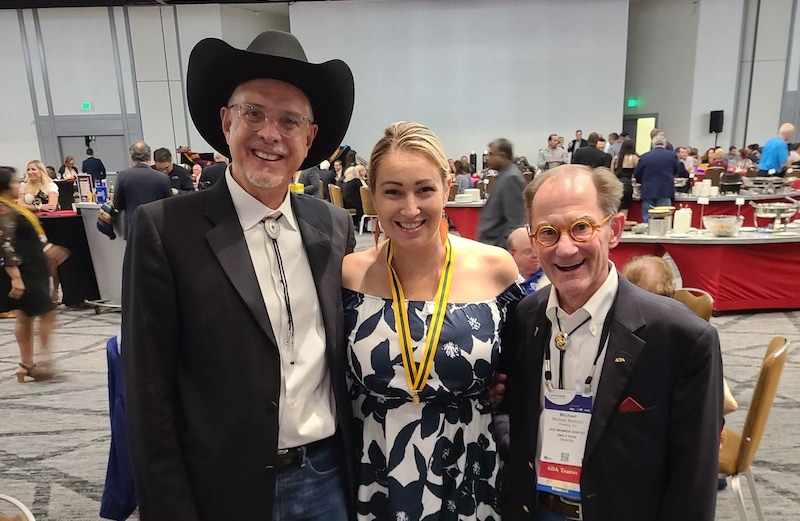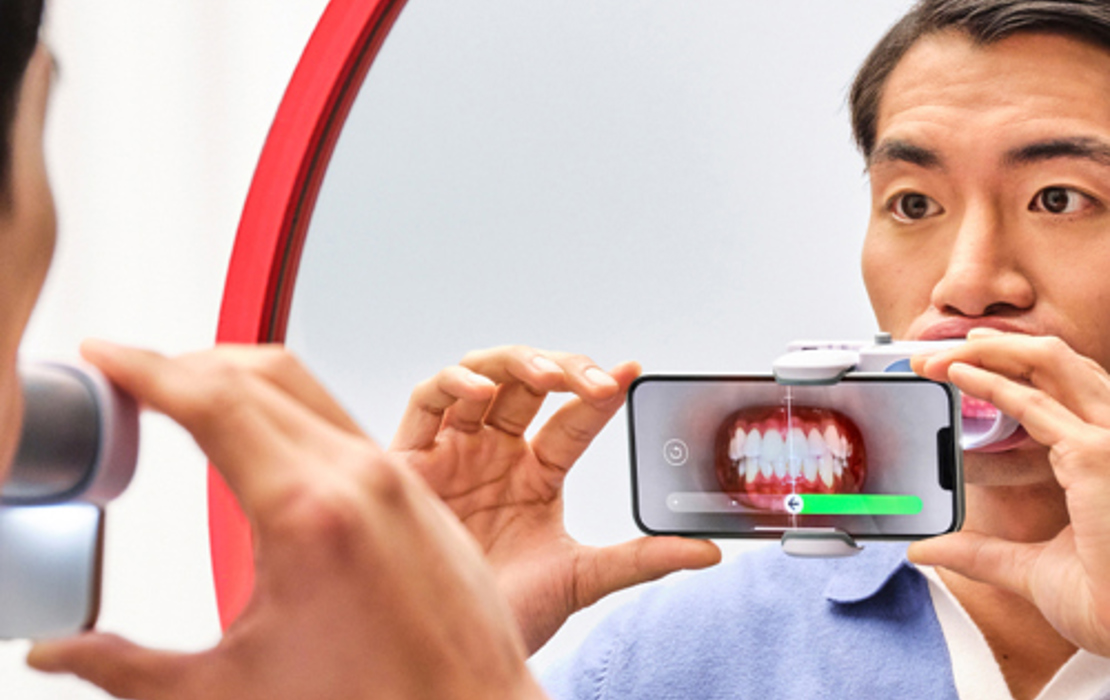West Virginia periodontist embraces DSO career path, roles in organized dentistry

During her time as a dental student and a periodontics resident, Kerri Simpson, D.D.S., was not planning a career path with a dental support organization, but during her residency, she met with the founding members of an endodontics-focused DSO with practices in West Virginia, Pennsylvania and Maryland, who gave her a different view of what a DSO could be.
Dr. Simpson, now board certified in periodontics and implant dentistry, had planned to go into solo practice after her residency and even had an office lined up. But then the DSO founders approached her with the idea of collaborating with them.
“I have always known the three original practitioners who started our specialty group but never thought of practicing with them until they approached me,” she said. “To be able to work beside some of the most respected humans in their field and community was a desire for me, especially since we were from two different fields. The idea of collaboration was a dream.”
Although Meridian Dental Specialists is a large DSO, Dr. Simpson is the only dentist in her Morgantown, West Virginia, periodontics-focused office, along with two hygienists, two assistants, two front desk members and an office manager.
“Even though I am by myself, one of the greatest benefits of being a part of my DSO is that I have access to others,” she said. “I always have access to other practitioners to ask clinical opinions. I have access to office managers, insurance and billing teams and human resources professionals. Coming out of dental school, we typically don’t have in-depth knowledge about the business aspects of our profession. This is a huge benefit of being with a DSO.”
Dr. Simpson’s path to dentistry has been far from traditional, she said. When she graduated from West Virginia University School of Dentistry in 2017, she had already earned a bachelor’s degree in biology from Boston University and intended to go to medical school. But she was also interested in research, and after studying ventilator-associated pneumonia with her father, a microbiologist, she changed her path.
“I fell in love with the oral-systemic link,” Dr. Simpson said. “This is when my passion for oral health and dentistry blossomed.”
She graduated from the dental hygiene program at WVU and continued on to dental school.
Dr. Simpson’s other passion is serving organized dentistry at the local, state and national levels. While in dental school, she served as class president and legislative liaison for her American Student Dental Association chapter and helped launch a mentorship program at the dental school. She took first place honors at the Student Competition for Advancing Dental Research and its Application for her research on silver diamine fluoride and was the first resident to graduate from her periodontics program.
Since graduation, Dr. Simpson has been a tripartite member and served as the new dentist member of the West Virginia Dental Association Executive Council and secretary of her component society, the Monongahela Valley Dental Society. She was elected ADA delegate for West Virginia — the first time a woman in her state ran and was elected to the office. She is also a member of the ADA Council on Membership, chair of the council’s Subcommittee on Membership Policy and Trends and a member of the ADA Task Force on DSO Engagement.
“I feel extremely fortunate to have been given the opportunity to start in organized dentistry early,” Dr. Simpson said. “I am truly honored to be serving on the Council on Membership as a new dentist. It has been one of the highlights of my early career. I believe serving on a national level has so many positives, but primarily I love meeting colleagues from across the nation and discussing important issues of our profession.”
An important part of supporting organized dentistry, she said, is helping dentistry keep its autonomy.
“A great mentor once told me, ‘We are the only ones with our fingers in the spit,’ and keeping the strength in organized dentistry allows us to do just that — practice the way we want, the way we should,” Dr. Simpson said.
“Being a new dentist, there is a lot on your plate. I understand that sometimes it seems there isn’t enough extra time to become involved. But the No. 1 thing I will say is that you make time for what you find important and enjoy. Organized dentistry offers so many resources to help new dentists, and it’s more than just the tangible benefits and products, such as loan refinancing, life insurance, continuing education, advocacy, etc. It’s the actual people, the camaraderie, the long-term relationships. It’s meeting colleagues in your area or from across the globe. It’s learning from those who have been through it. These are aspects that are truly invaluable, especially for a new dentist.”



